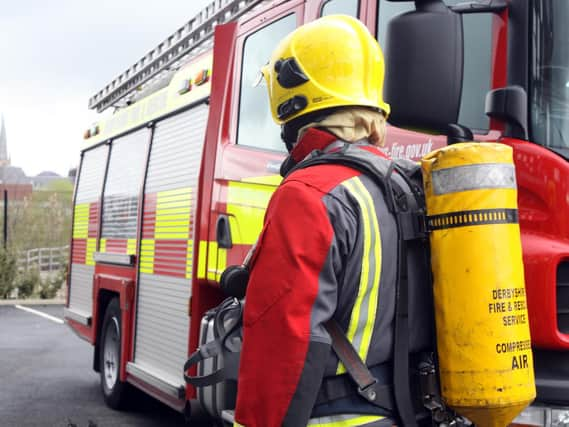Businesses to pay for false fire service calls, after just 14 per cent of cases in two years were real emergencies


A new response policy for automatic fire alarms (AFAs) was approved at a recent meeting of the Humberside Fire Authority.
The meeting followed a public consultation asking if there was support from the public and business community to not attend an AFA if it occurs during normal working hours of a business, unless there is confirmed fire at the premises.
Advertisement
Hide AdAdvertisement
Hide AdAgreement came from 77 per cent of respondents and the change in policy was approved.
A second question asked whether HFRS should charge businesses who repeatedly call out engines to AFAs without a confirmed fire. This showed 86 per cent of public, staff and businesses in agreement.
New policy means a charge will be made following a fourth false alarm in a 12 month period.
Humberside Fire & Rescue Service receives over 1400 false alarm calls every year on average, from firms and organisations that drain emergency service resources.
Advertisement
Hide AdAdvertisement
Hide AdDuring 2015-17, HFRS received an annual average of 1661 fire or alarm related calls to commercial properties of which only 14 per cent were actual fires that required an emergency attendance.
While Humberside Fire crews will always attend confirmed fires, at a time when the Fire Authority is facing an extremely challenging financial situation, members felt it hard to justify continuing to send engines to AFAs which are not confirmed fires, when around 86 per cent turn out to be false alarms.
Free specialist support from business safety inspectors at the fire service, is available with advice to businesses on how to reduce false alarms.
Paul McCourt, HFRS director of service delivery, said: “The positive public response to our consultation and the detailed consideration given by Members has ensured we have a solid base from which to proceed. 'Over the next six months, we will fine-tune policies to ensure Control staff, operational crews and the business community are fully aware of the changes and that we continue to work together to make workplaces as safe as they can be.” The new policies will roll out on October 1, 2019.